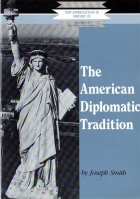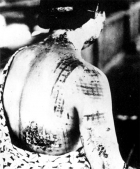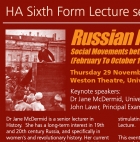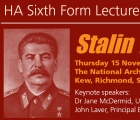World 1901-present
Some of the most profound and influential changes in world history take place from 1901 to today and covered here are many of the important and well known ones as well as some of the smaller stories. In terms of reach this section covers huge themes on diplomacy, post imperialism and economics. The articles cover the time period right up into recent events such as the State of the Union address by the US President Barrack Obama.
Sort by:
Date (Newest first) | Title A-Z
Show:
All |
Articles |
Podcasts |
Multipage Articles
-

Triumphs Show 133: Little Miss Cold War
ArticleClick to view -

The American Diplomatic Tradition
ArticleClick to view -

Hiroshima and Nagasaki: Introducing students to historical interpretation
ArticleClick to view -

History, citizenship and Oliver Stone
ArticleClick to view -
Martin Luther King - Judge for Yourself
ArticleClick to view -

Free Film Education Resources
ArticleClick to view -

Russian Revolution: Social Movements between the Revolutions Feb-Oct 1917
ArticleClick to view -

Podcast: Stalin 1928-1941
ArticleClick to view -

Breaking the 20 year rule: very modern history at GCSE
ArticleClick to view -

Why can't they just live together happily, Miss?' Unravelling the complexities of the Arab-Israeli conflict at GCSE
ArticleClick to view -

Polychronicon 119: The Second World War and popular culture
ArticleClick to view -

Brazil and the two World Wars
ArticleClick to view -

Nutshell
ArticleClick to view -

JFK: the medium, the message and the myth
ArticleClick to view -

Cunning Plan 111: Year 8 lesson on C.V. Wedgwood's writing
ArticleClick to view -

The origins of the Arab-Israeli Conflict
ArticleClick to view -

Hitting the right note: how useful is the music of African-Americans to historians?
ArticleClick to view -

'Which was more important Sir, ordinary people getting electricity or the rise of Hitler?' Using Ethel and Ernest with Year 9
ArticleClick to view -

Triumphs Show 105: Year 9s respond directly to 9/11
ArticleClick to view -

Cunning Plan 99: 'a world study after 1900'
ArticleClick to view

